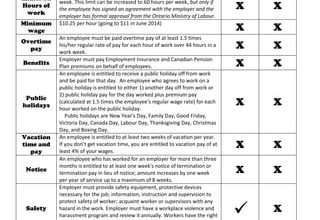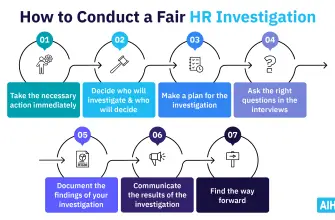Mastering the art of managing difficult employees is a skill that every manager needs to acquire. It’s hard to do or deal with, but it’s a crucial part of maintaining a healthy and productive work environment. Whether you’re dealing with an employee with a bad attitude, a combative employee, or a team member who consistently undermines you, it’s essential to approach the situation with tact, understanding, and firmness. This article will explore the types of difficult employees, the consequences of not listening to employees, and proven strategies for managing workplace challenges.
Understanding the Types of Difficult Employees
Before you can effectively manage difficult employees, it’s important to understand the different types of challenging behaviors you might encounter in the workplace. Here are some examples of difficult employees:
- An employee with a bad attitude: This individual may be negative, uncooperative, or consistently pessimistic, bringing down the morale of the entire team.
- A combative employee: This person may be argumentative, confrontational, or aggressive, creating a hostile work environment.
- An employee who undermines you: This individual may question your authority, spread rumors, or attempt to sabotage your efforts, making it difficult for you to lead effectively.
- A stubborn employee: This person may resist change, ignore feedback, or refuse to follow instructions, hindering progress and productivity.
Consequences of Not Listening to Employees
Ignoring the concerns and feedback of your employees can lead to a host of problems. These may include decreased morale, lower productivity, increased turnover, and a toxic work environment. It’s crucial to listen to your employees, understand their perspectives, and address their concerns promptly and effectively.
Strategies for Managing Difficult Employees
Dealing with difficult employees requires a combination of effective communication, firmness, and empathy. Here are some strategies to help you manage challenging management situations:
- Confronting an employee: It’s important to address issues directly and promptly. Discuss their behavior privately, provide specific examples, and explain how their actions are affecting the team and the organization.
- Coaching difficult employees: Provide constructive feedback and offer guidance on how they can improve. Regular coaching sessions can help employees understand what is expected of them and how they can meet these expectations.
- Dealing with difficult behaviour in the workplace training: Implementing training programs can equip employees with the skills to handle conflicts, communicate effectively, and work collaboratively.
- Setting clear expectations: Clearly communicate your expectations regarding behavior and performance. Make sure your employees understand the consequences of not meeting these expectations.
Dealing with Difficult Employees as a New Manager
As a new manager, dealing with difficult employees can be particularly challenging. It’s important to establish your authority while also building trust and respect. Be firm but fair, listen to your employees, and show that you’re committed to their success as well as the success of the team.
How to Handle an Employee with a Bad Attitude
Dealing with an employee with a bad attitude can be challenging. Here are some steps to handle this situation:
- Identify the problem: Understand the root cause of the bad attitude. Is it due to personal issues, work-related stress, or dissatisfaction with their role?
- Communicate: Have a private conversation with the employee. Express your concerns about their attitude and its impact on the team.
- Provide feedback: Offer constructive feedback and suggest ways they can improve their attitude.
- Follow up: Monitor their behavior and provide ongoing feedback. If the attitude doesn’t improve, consider disciplinary action.
How to Deal with an Employee Who Undermines You
Dealing with an employee who undermines you can be a challenging management situation. Here’s how to handle it:
- Address the issue directly: Have a private conversation with the employee. Explain how their actions are undermining your authority and affecting the team.
- Set clear expectations: Make it clear that undermining behavior will not be tolerated. Outline the consequences of continued undermining.
- Document incidents: Keep a record of instances where the employee has undermined you. This can be useful if disciplinary action is required.
Conclusion
Managing difficult employees and disruptive behaviors is a challenge that every manager will face at some point. Whether you’re dealing with a bad employee, a difficult team member, or a toxic employee undermining you, it’s important to handle the situation with tact, understanding, and firmness. By implementing effective strategies such as confronting the employee, coaching, and providing training, you can turn these challenges into opportunities for growth and improvement.










